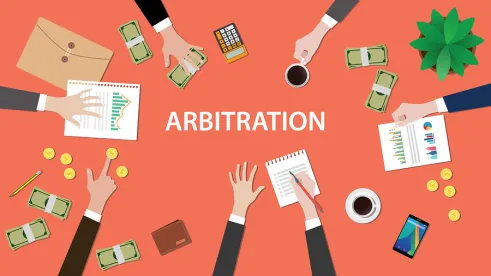A motion to compel arbitration and stay proceedings is often a defendant’s best weapon in TCPA litigation. But is this strategy viable when a defendant is not a party or signatory to the arbitration agreement? What if a plaintiff accepts the terms of an arbitration provision after receiving the calls or texts at issue? The answer to both of these questions could be yes depending on the wording of the arbitration agreement and the defendant’s role in making the calls, as demonstrated in Thompson v. Sutherland Global Servs., No. 17 C 3607, 2019 U.S. Dist. LEXIS 57539 (N.D. Ill. April 3, 2019). In Thompson, the Court granted the Defendant’s renewed motion to compel arbitration by finding the Defendant was entitled to enforce AT&T’s arbitration clause because it was an agent of AT&T as demonstrated by AT&T’s clear right of control over its behavior, even though the Defendant was not a signatory to the arbitration agreement. Even more noteworthy, the Court enforced the arbitration clause covering conduct that arose prior to Plaintiff’s acceptance of the arbitration terms.
The facts in Thompson are relatively straightforward. The Plaintiff initially filed suit against AT&T, AT&T’s affiliate Illinois Bell, and Sutherland Global Services, Inc., alleging that Defendants violated the TCPA by making unsolicited prerecorded voice calls to the plaintiff regarding his AT&T Internet service. The Plaintiff then dismissed AT&T and Illinois Bell and continued his suit against Sutherland Global only, the company that contracted with AT&T to call AT&T customers.
The court denied Sutherland Global’s first motion to compel arbitration under the AT&T terms of service, finding the agreement to arbitrate enforceable, but ordering the parties to conduct discovery on the relationship between Sutherland Global and AT&T. In last week’s opinion, however, the court granted Sutherland Global’s renewed motion to compel arbitration, reiterating the enforceability of the arbitration agreement and also finding that the agreement applied as between Plaintiff and Sutherland Global.
While Plaintiff alleged that Sutherland made three calls to him in December 2015, after the Plaintiff registered for AT&T’s Internet service but before he had installed the necessary equipment and accepted the terms of service that included the arbitration provision, the court rejected the Plaintiff’s challenges to the arbitration agreement’s enforceability because the agreement was drafted to apply broadly to AT&T and its “affiliates, agents, employees, predecessors in interests, successors, and assigns” and to cover “[c]laims that arose before this or any prior Agreement.”
What is significant here is that the Court summarily dismissed Plaintiff’s argument that the arbitration agreement could not apply to his claims because the calls arose before Plaintiff accepted the online terms of service containing the arbitration provision. Noting, “[t]his argument fails because the arbitration agreement expressly applies to ‘[c]laims that arose before this or any prior Agreement’ relating to the U-Verse service,” the court found that “[t]he arbitration agreement here covers claims related to the U-Verse service, was contained within the U-Verse terms of service, and Defendant’s calls to Plaintiff related to the U-Verse service.” These facts therefore satisfied the court that Plaintiff’s claim “bears enough relation to the subject matter of the U-Verse terms of service and the accompanying arbitration agreement such that the parties must proceed to arbitration.”
The court also held that Sutherland Global was AT&T’s agent based on the specific facts underlying the parties’ relationship. Though the agreement between AT&T and Sutherland Global identified Sutherland as an independent contractor, AT&T controlled both the customer calls—from the call list and call volume to the call scripts and the music on the calls—and Sutherland’s employment decisions—including “staffing, training, discipline, and equipment decisions.” Thus, even though Sutherland Global was not a signatory to the agreement, the court considered Sutherland an “agent” of AT&T, and therefore a party to the arbitration agreement, and likewise found that Sutherland Global would qualify as a third-party beneficiary given the broad language of the arbitration agreement covering all disputes with AT&T customers.
The lesson here folks: pay close attention to the wording and scope of arbitration provisions and seek to apply them as broadly as possible if the facts of your case permit.




 />i
/>i
